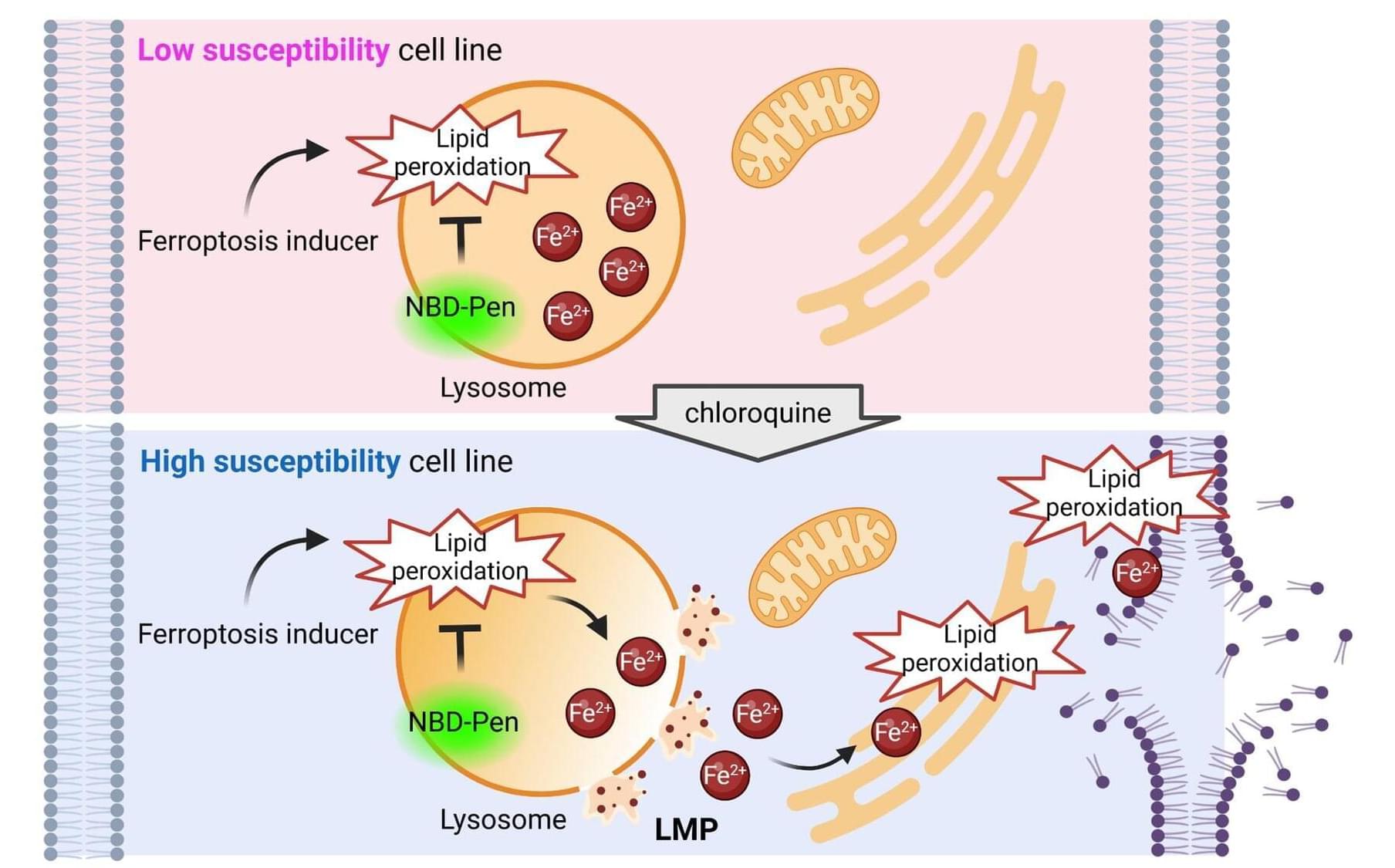The duplication and division of cells is critical to keeping all multicellular organisms alive. But the opposite process is equally important: cell death. Controlled death of cells, or programmed cell death, is also necessary for the proper development and function of the body. It has also been a focus of researchers developing treatments for cancer by finding ways to activate the cell death of cancer cells themselves.
Ferroptosis is a recently discovered form of programmed cell death and has been a promising target for the development of cancer treatments. It is mediated by iron molecules, with the cell dying through the degradation of the phospholipid bilayer by oxidation, a process called lipid peroxidation. However, recent studies have shown that certain cancer cells are less susceptible to ferroptosis, raising concerns that this resistance could pose a barrier to future therapeutics.
In a paper published in Nature Communications, researchers from Kyushu University, using cultured cells and mice, found that the lipid peroxidation of the lysosomes—the organelle responsible for degrading and recycling molecules in a cell—plays a critical role in the execution of ferroptosis.
